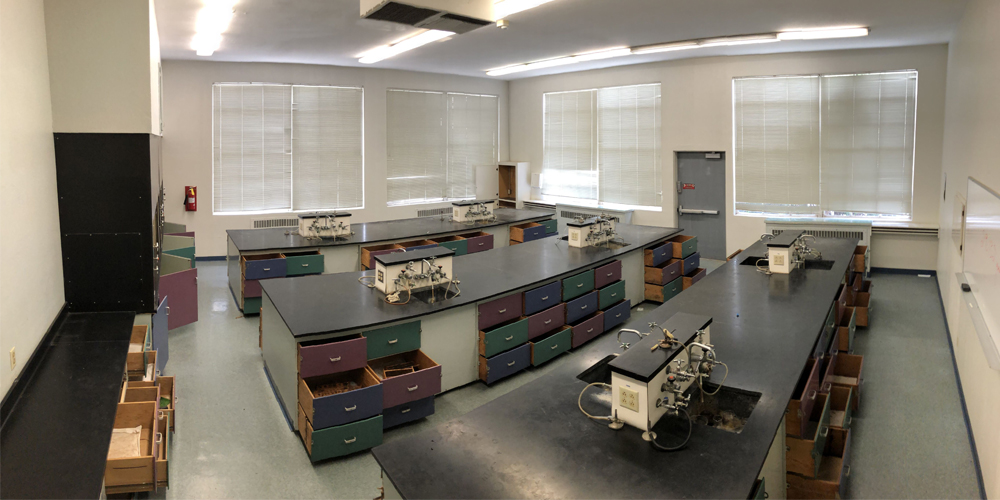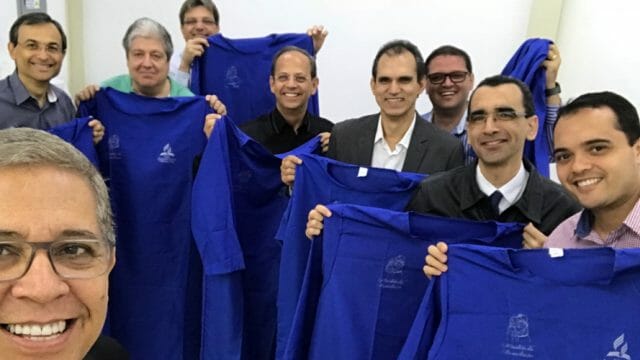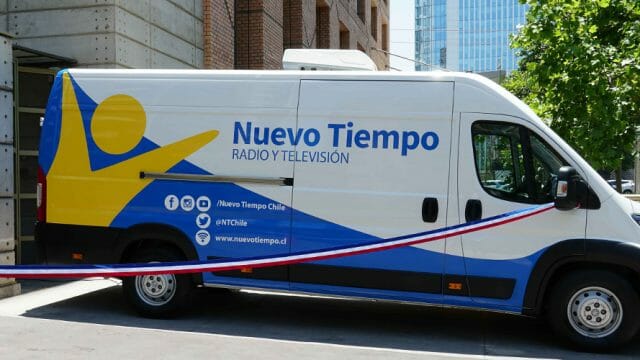Program for Hispanic and low-income young people helps them to succeed, leaders say.

A federal grant program to address inequities in STEM education is under implementation at La Sierra University, a Seventh-day Adventist school in Riverside, California, United States. The program helps at-risk students earn bachelor’s degrees and pursue STEM careers.
Directed toward Hispanic and low-income students, the grant, Guided Pathways to Success in Science, Technology, Engineering, and Mathematics (STEM), is funded by a US$3 million Title V award received in October 2019 from the U.S. Department of Education.
“We believe that students shouldn’t be limited by barriers to success because of their circumstances,” said Marvin Payne, director of Title V programs at La Sierra University. “Our programs are helping to break down the barriers.”
The funding supports the development, improvement, and expansion of programs that increase equitable access to STEM degree programs and improve graduation rates, bolstering the STEM workforce. The university, whose student body is more than 45 percent Hispanic, was among 43 colleges and universities around the country approved to receive a Title V STEM grant through the Developing Hispanic-Serving Institutions program in 2019.
It is the second Title V grant for the university — the first five-year grant of US$2.6 million began in October 2015 for implementation of a summer intensive in math, college prep courses to boost student confidence, and other programs aimed at student success. Titled Closing the Gap: A Holistic Approach to a Degree Completion Pathway for Hispanics, the grant was specifically designed to help at-risk first-year students succeed in foundational courses, adjust to the rigors of college academics, and inspire them toward degree completion.
The Guided Pathways to Success grant, also a five-year allocation, is currently focusing on supporting high school seniors who plan to enroll in a California community college, are interested in chemistry, computer science, physics, and other STEM majors, and desire to transfer into a four-year program to complete a bachelor’s degree.
“Some of the least served students in the current higher education community start at community college due to the lower cost of tuition,” said Guided Pathways Team Leader Jennifer Helbley, an associate chemistry professor. “We wanted to give them a clear pathway to a four-year degree. Most of all, we want to make sure that our outreach is getting to those who haven’t had a chance to enroll in college programs or had a chance to enroll but didn’t because they weren’t ready to commit.”
The Guided Pathways to Success grant is intended to cover more than new program development. During the 2020 summer, in the quiet of a campus closed to most operations under state pandemic mandates, two general chemistry laboratory spaces in La Sierra’s Palmer Hall underwent a transformation to better conduct data collection and data processing. Outdated built-in lab stations and extra rooms were removed, and additional entries and exits were constructed. One newly renovated space is outfitted with desks for computers and charge lockers. The other space functions as a wet lab.
“This allows for safer experimentation as students will have clear spaces where they must wear personal protective equipment and spaces where they do not need to,” Helbley said. “This new setup has the added benefit of being easier to adapt to social distancing and other safety measures, but the design choices were already made in that direction before the pandemic.” In addition, a student study lounge was expanded, and an existing office was remodeled as a faculty lounge.
Next door in Price Science Complex, the university’s biology department utilized Title V grant funds to purchase equipment and supplies, including a spectrophotometer used for greater accuracy in DNA and RNA analysis and gel imaging system that will allow for a streamlined, state-of-the-art method of imaging nucleic acid and protein gels.
“The equipment and supplies purchased through Title V funds have given students who are part of SEA-GENES the opportunity to perform experiments that allow them to study viruses that infect bacteria, also known as bacteriophages,” said Arturo Diaz, assistant professor in the biology department at La Sierra University. “These research and publishing opportunities for undergraduates make the biology department distinct and give our students a decided advantage as they pursue graduate or professional school or a career in research.”
Students in Title V–funded programs will benefit from expanded collaborative study and research space and the ability to work with high-tech instruments as they pursue academic and career dreams in STEM sectors.
Payne said, “If anyone doubted the need for qualified STEM professionals before the COVID pandemic, it should be clear now. Through these grants and collaborations, we are working to create an environment where students can realize their potential and make a difference in the world.”
The original version of this story was posted on the La Sierra University news site.








